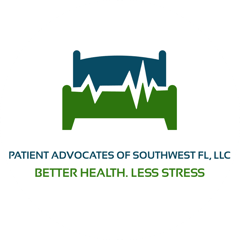7 Ways to Help Doctors Notice When Something Is Wrong with Your Spouse, Parent, or Child
Posted on June 16, 2023
While every family is unique, all families share a bond that can be used to support one another during trying times. In the face of illness or challenging health circumstances, family members can play a role in advocating for the health and well-being of their loved ones. Family members become invaluable allies in the journey between healing and recovery by offering emotional support, and practical assistance, and acting as a liaison between the patient and healthcare providers.
While every family is unique, all families share a bond that can be used to support one another during trying times. In the face of illness or challenging health circumstances, family members can play a role in advocating for the health and well-being of their loved ones. Family members become invaluable allies in the journey between healing and recovery by offering emotional support, and practical assistance, and acting as a liaison between the patient and healthcare providers.
One significant way family members can contribute to their loved one’s well-being is by calling attention to the primary care provider or other doctors when they notice something is “off” or wrong. Healthcare providers rely on patients and their families to provide valuable information and observations that can lead to an accurate diagnosis and treatment.
In this blog, we will explore strategies that family members can use to assist physicians in identifying potential health issues and ensuring the best possible outcomes for their spouse, parent, or child. Here are seven ways you can help doctors notice when something is wrong:
1. Observation: As family members, we are most likely to know our loved one’s typical behavior, habits, and routines. Changes, especially in their physical or mental state, should be shared and discussed with the doctor.
2. Communication: Open and honest communication with healthcare professionals is vital. Share any concerns, symptoms, or observations you have noticed. Providing specific details and examples helps doctors better understand the situation.
3. Keep records: Maintain a record of symptoms, medications, treatments, and any relevant medical history. This information should be shared with doctors during appointments to provide a comprehensive overview of what the patient is experiencing.
4. Be prepared to ask questions: Family members should never hesitate to ask questions during doctor visits or consultations. Seeking clarification, understanding treatment opinions, and expressing worries or uncertainties ensures that all relevant information is shared and understood.
5. Be proactive: Family members can and should actively participate in the care process by seeking second opinions, researching medical conditions, and staying informed about treatment options. This proactive approach helps in understanding the available resources and making informed decisions.
6. Collaboration with the healthcare team: Family members can collaborate with the healthcare team by attending appointments, staying with their loved ones during hospital stays, and actively engaging in care discussions. Asking questions, exploring alternative options, and even inquiring about the healthcare providers’ perspective can contribute to comprehensive care.
7. Trust your instincts: No one knows the patient better or understands their loved one’s well-being more deeply. If something feels off or concerns persist despite reassurances, it is important to trust that gut feeling and seek further medical attention or advice.
Your involvement as a family member is crucial in supporting your loved one’s health and well-being. By actively employing these strategies, family members can become effective advocates, helping doctors when they notice something is wrong, and making sure their spouse, parent, or child consistently receives the necessary care and attention.



